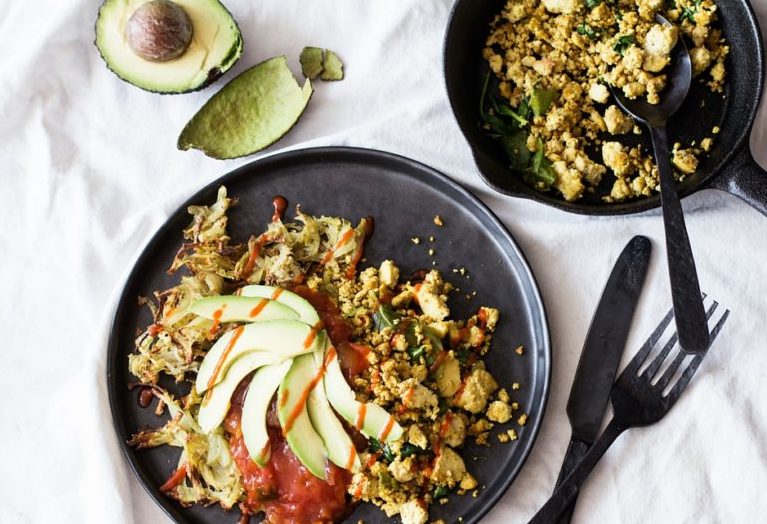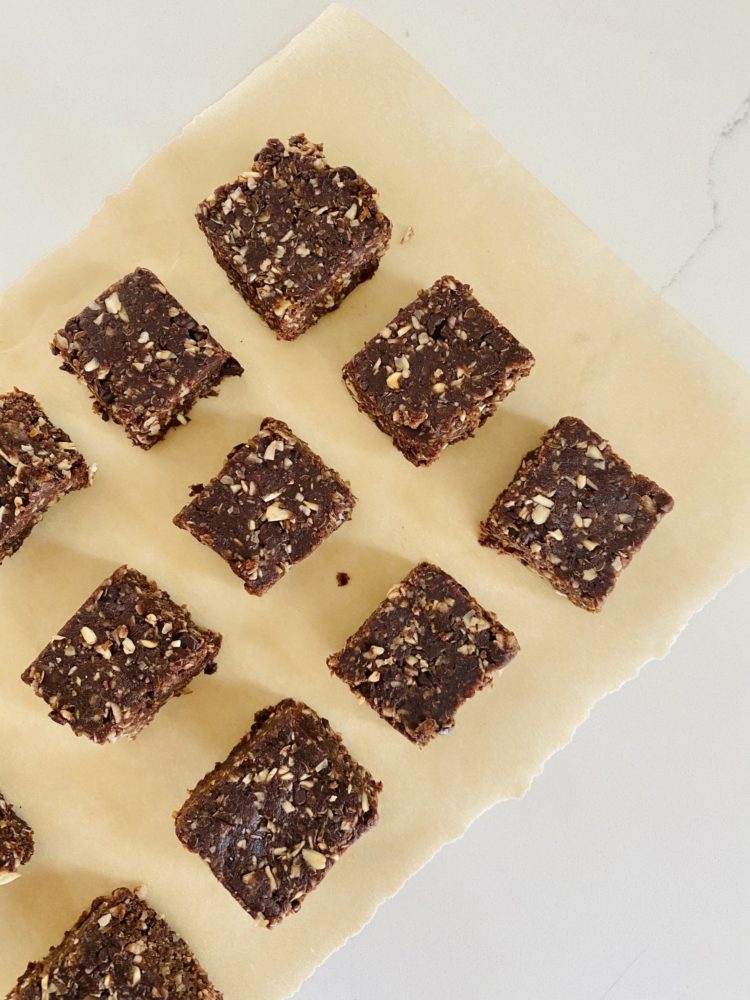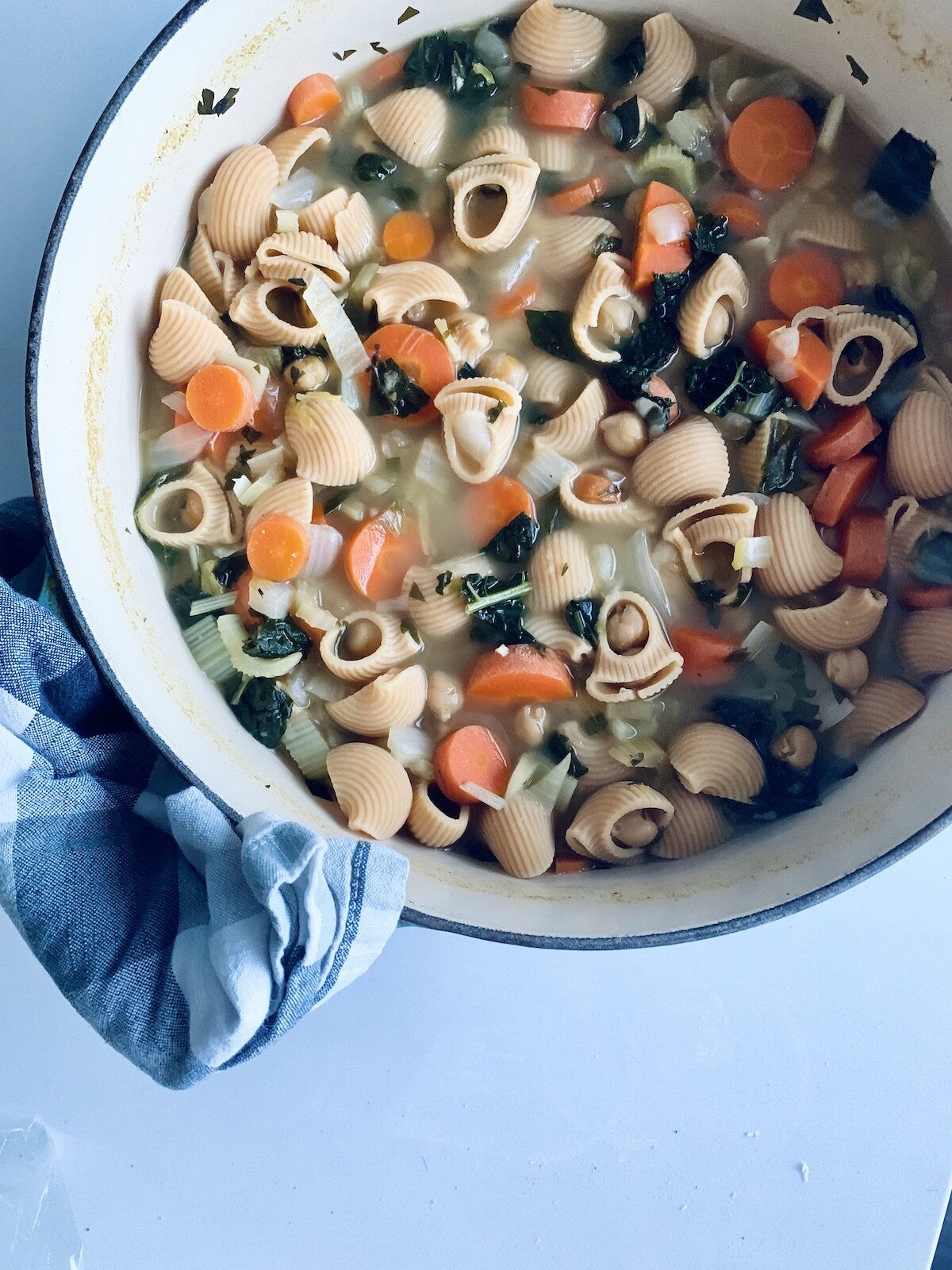If you’re tired of following strict food rules, trying to avoid your favorite things, obsessing about your weight, counting calories, or wasting money on diet books with big promises, then this post is for you! Eating plant-based doesn’t exempt you from dieting. The plant-based world is filled with diet culture just the same as the rest of the nutrition world. But here’s the thing: plant-based eating doesn’t have to feel like a diet. It’s possible to eat plant-based in a way that nourishes your health, satisfies your tastebuds, and feels… easy. Intrigued? Here are some ways that your life will get a lot better when you stop plant-based dieting.

What is plant-based “dieting”?
Simply put, plant-based “dieting” is approaching plant-based eating like just another diet. Some people mistakenly believe that plant-based eating is itself a diet, but that’s not true. It is 100% possible to eat plant-based in a way that is driven by your values – not by weight loss, restriction, and diet rules. The opposite of plant-based dieting is plant-based intuitive eating. If you’re not sure whether or not you’re dieting or eating intuitively, take this quiz to find out! And if you want to learn more about diet culture in the plant-based world (and if you might be falling prey to it), read this post.
Why Diets Don’t Work
So, why should you stop trying different diets? Dieting doesn’t work, plain and simple.
Diets have long been marketed as the ultimate solution for weight loss and improved health, yet the reality is that they often lead to frustration, guilt, and a cycle of restriction and bingeing that can be damaging both physically and emotionally. Here are some key reasons why dieting fails to deliver the promised results:
1. The Cycle of Restriction and Bingeing
One of the fundamental reasons diets do not work is that they often create a cycle of restriction and bingeing. When you impose strict limitations on what you can eat, your body naturally rebels against these constraints. This rebellion can manifest as intense cravings or episodes of binge eating, leading to a feeling of loss of control around food. Weight cycling and yo-yo dieting also have negative impacts on your physical health. In contrast, allowing yourself to eat freely can help reduce these cravings over time, making it easier to maintain a balanced relationship with food.
2. Metabolic Adaptation
Calorie restriction, a common component of many diets, can have unintended consequences on your metabolism. When you consistently consume fewer calories than your body needs, it can enter a state often referred to as “starvation mode.” In this state, your metabolic rate slows down as your body tries to conserve energy, making weight loss more difficult and increasing the likelihood of regaining weight once the diet is over. This physiological response can lead to a frustrating cycle where each diet attempt becomes less effective than the last.
3. The Thin Ideal and Cultural Pressure
The pervasive influence of the thin ideal, perpetuated by media and a multi-billion dollar diet industry, creates an environment that glorifies weight loss as a measure of success and worth. This cultural pressure can lead individuals to feel that dieting is the only path to acceptance and happiness, pushing them into a cycle of fad diets unhealthy eating behaviors. The constant bombardment of diet culture can skew our perception of health, leading us to equate our self-worth with our appearance.
4. The Emotional Toll
Diets often ignore the emotional aspects of eating, which can be crucial to developing a healthy relationship with food. The stress of tracking calories, counting points, and adhering to rigid food rules can lead to anxiety and feelings of failure if those rules are broken. This emotional toll can further entrench disordered eating patterns and contribute to a negative self-image, creating a vicious cycle that is difficult to escape.
5. Lack of Sustainability
Lastly, many diets are simply not sustainable in the long term. They often require significant, unrealistic lifestyle changes that are hard to maintain over time. Instead of focusing on temporary fixes that promise quick results, a more effective approach involves cultivating a mindful and flexible relationship with food that supports long-term health and well-being.
7 Things That Happen When You Stop Plant-based Dieting
1. Your food cravings will lessen.
When you stop dieting, you may find that your food cravings begin to lessen significantly. Diets often create a sense of restriction, leading to an unhealthy fixation on certain foods, especially those that are deemed “off-limits.” This ban on certain foods can provoke cravings, making you more likely to desire the very items you are trying to avoid.
In contrast, when you adopt a non-diet approach that allows for flexibility and balance, your relationship with food changes. You start to experience the freedom to enjoy a broader variety of foods without guilt. This decreased emphasis on restriction means that cravings diminish over time as you start to acknowledge and satisfy them.
For example, if you’ve been on a strict diet that eliminates sugar, the cravings for sweets might feel overwhelming. Instead, if you allow yourself to enjoy your favorite sweets without restriction, they become less of a fear food and more a normal part of your eating habits. Consequently, when cravings arise, they don’t carry the same weight of panic or guilt, enabling you to choose to eat the food or not based on how you actually feel, rather than a rigid set of rules.
2. You’ll think about food a lot less.
This newfound freedom can greatly reduce the mental energy spent on food decisions. When you stop dieting, the preoccupation with measuring portions, counting calories, or worrying about “cheating” on your diet diminishes. Instead of obsessing over what you can or cannot eat, you adopt a more intuitive approach to eating. Food no longer feels like it has power over you.
As a result, thinking about food becomes less of a constant distraction and more of a pleasure. You’ll start enjoying meals, savoring flavors, and appreciating the social aspects of eating with others, instead of merely viewing it as a means to an end. This holistic approach transforms your relationship with food into a more positive and enjoyable experience.
3. You’ll get more in touch with your body’s cues.
Dieting often promotes an external approach to eating, where you rely on arbitrary rules and numbers instead of your internal cues. By letting go of diets, you can begin to listen to what your body genuinely needs. You’ll be able to hear your hunger cues and fullness cues more clearly.
You might find that certain foods energize you while others may lead to discomfort. The absence of rigid dietary constraints allows you to explore these sensations without the pressure of guilt or failure. Instead of eating when you feel you “should” or following a schedule dictated by diet plans, you will learn to eat when you’re truly hungry. This approach fosters a deeper understanding of your body’s needs and preferences.
4. Your self-esteem will improve.
By breaking free from diets, you also liberate yourself from the often unrealistic expectations and self-judgment that come with them. Many individuals experience a rollercoaster of emotions tied to their weight and eating habits, frequently associating their worth with their diet success or failures. When you stop dieting, this cycle can be disrupted, leading to a more compassionate view of yourself.
Taking an intuitive eating approach to plant-based eating instead of a dieting approach can foster better body image, self-esteem, and better mental health.
5. You’ll feel more present in food situations (and non-food situations too!)
Thoughts of “should” and shouldn’ts”, calorie counting, body checking, guilt, and food obsession pull you out of the present moment. You’re less able to enjoy the moment or the company of friends and family with all of these thoughts and worries bouncing around in your mind. When you let go of dieting, you’re free to be in the present moment. What a relief! Stepping off the diet train and making peace with food allows you to access more joy in your life.
6. You’ll feel more connected to your values
Earlier in this post, I mentioned that plant-based eating can be a rich and meaningful values-based way of approaching food. When you stop treating plant-based eating like a diet, you can reconnect with the core values that led you to plant-based eating in the first place. Whether it’s a desire to lessen your environmental footprint, end animal suffering, or manage a specific health concern (yes, your health can be a non-diet value!), you’ll feel more grounded in your values without the diet rules and restrictions distracting you.
7. Plant-based eating will feel easier (and way more fun!)
This one might surprise you! You may think that rigid rules and detailed plans help you stay on track, but the more rigid the rules, the more likely they won’t work with your real life. Life is full of many seasons, transitions, and ups and downs. And eating is forever. So, you need a plant-based eating approach that is flexible, enjoyable, and doable for you. Without dieting, you are free to customize your plant-based eating to suit you, which means you’re much more likely to stick with it long-term.
Want help ditching plant-based dieting?
Now that you know how your life will change for the better when you give up dieting, how do you ditch plant-based dieting for good?! I’m here to help! I designed my Plant-based Intuitive Eating Program for women who are ready to step out of the diet cycle and find the joy and ease of plant-based eating. I wrapped my decade as a plant-based nutrition expert and intuitive eating counselor into this one-of-a-kind program. If you’re ready to heal your relationship with food, then I’ll see you inside!


